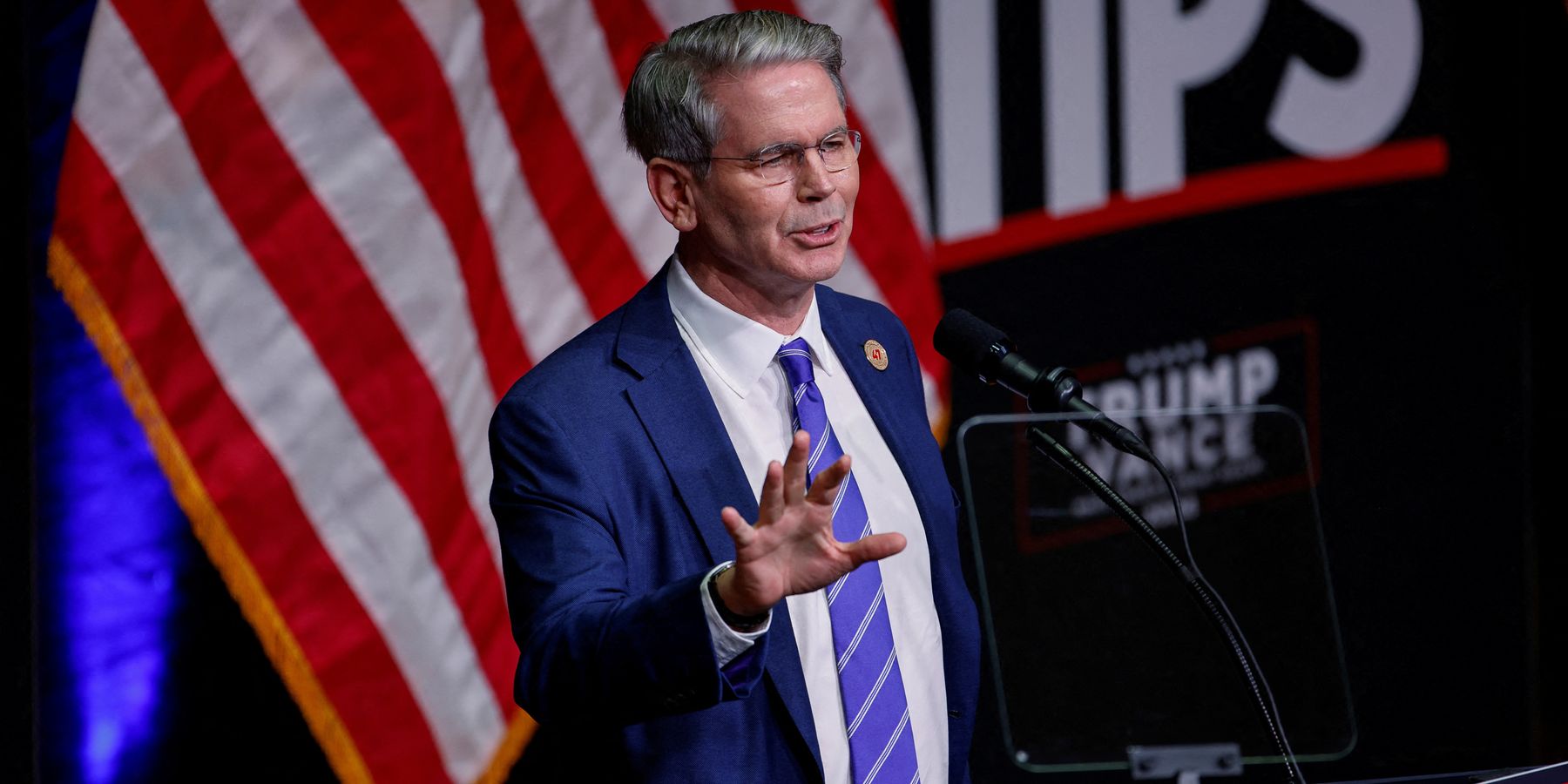Late Friday, president-elect Donald Trump announced his pick for Treasury Secretary, Scott Bessent. The announcement had taken a longer time than other appointments, suggesting a period of extended infighting within the coalition on economic policies and personnel.
According to reports, opposition to Bessent was centered on the idea that he was insufficiently committed to Trump’s proposal to hike tariffs to 50-60% on all imports from China and to 10-20% on imports from all other countries. On the other hand, he was the candidate most favored by the financial markets, a consideration that may have prevailed at the end, reflecting a presidential disposition to treat the performance of the stock market as a report card.
Trump’s announcement naming Bessent describes him as “one of the world’s foremost international investors and geopolitical strategists.” And indeed, the appointee is a very well-known practitioner of “Global Macro” investing. The term describes a strategy that involves big bets on the direction not just of stocks, but also of currencies, interest rates, bond yields, and commodity prices — all assets affected not just by economic and financial factors, but also by the interaction of national and global politics.
Trump also said the Bessent pick would help America “fortify [its] position as the World’s leading Economy, Center of Innovation and Entrepreneurialism, Destination for Capital, while always, and without question, maintaining the U.S. Dollar as the Reserve Currency of the World.” This might seem a self-evident reason for the appointment, but at least part of the appointment letter is at odds with a position taken by J.D. Vance.
The V.P.-elect has been skeptical that the American people benefit from their country issuing the global reserve currency, implying that this leads to dollar strength that makes imports too cheap in America, and exports from here too expensive. In an exchange with Fed Chair Jay Powell in March 2023, Vance said, “in some ways you can argue that the reserve currency status is a massive subsidy to American consumers but a massive tax on American producers.”
But Bessent views the centrality of the dollar as an asset. His opinions are embedded in a broader world-view that dovetails with many of geopolitical D.C.’s preoccupations over the last decade.
For example, in an article commemorating former Japanese PM Shinzo Abe written in fall 2022, Bessent noted that “President Trump’s most enduring achievement may have been to wake the United States and the world to the growing dangers of an ever-more-antagonistic China. In response, Abe’s greatest foreign policy achievement was taking this awakening and developing a multilateral solution for containment.” He also worries that “Abe’s construction of an Indo-Pacific alliance is likely to be tested in the near future as China defines a new status quo with its relationship with Taiwan.”
And in an illuminating interview conducted just this fall, Bessent goes into greater detail (beginning at around 30 minutes) about how the U.S. should make use of its combination of three huge assets — military strength, financial preeminence, and sheer market size — as usable tools along a spectrum that runs from cooperation through suasion to outright coercion.
He plays with the idea of a stratification of tariff levels (green, yellow, red) based on adherence to American values and interests, invoking a hypothetical reminder to India of the risks it might run by buying Russian oil. He suggests that countries that benefit from the American defense umbrella return the favor by buying long-maturity U.S. debt of 30 or 40 years, “paying upfront” for what they receive.
Bessent then welcomes the fact that the centrality of the dollar in the international monetary system allows America to use its power of sanctions extraterritorially (against entities outside its borders) to influence or punish their behavior. And finally he talks about the potential to use tariffs against China not to push regime change but rather to force it to change an economic model based on investing and exporting too much and consuming too little.
Now, these were obviously off the cuff remarks in a single interview, but if nothing else they reveal both a great deal of thought and a significant commonality with long-prevalent instincts in Washington, many of which are shared by Trump (and the current Biden national security team). There is a clear attachment to American primacy, even if expressed in a nuanced and thoughtful manner that privileges economic and financial tools to ensure the same over purely military ones.
Time will tell, but it seems the U.S. might now have a Treasury Secretary whose own inclinations and understanding of the complex linkages across finance, politics, and economics make him less wedded to restraint than his near predecessors.
At the same time, the tools at his disposal (and an implicit mandate from the White House to protect asset markets) may make him more restrained than his peers in other cabinet posts.
- Trump loves tariffs but expect a more complicated trade policy | Responsible Statecraft ›
- Trumponomics: Global South is girding for tariffs — or not | Responsible Statecraft ›
- How Trump declares emergencies for tariffs and other 'problems' | Responsible Statecraft ›
- In Trump push to decouple, the dollar might be first real victim | Responsible Statecraft ›
















